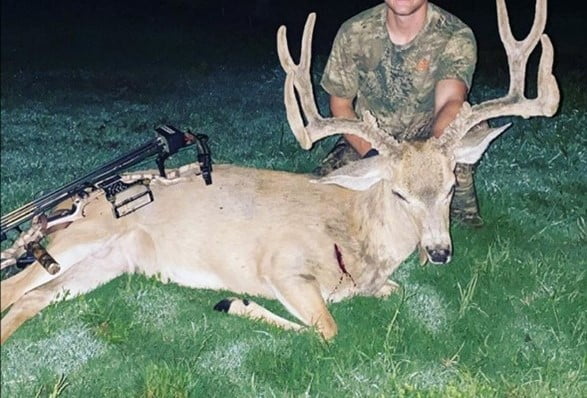
The Trump administration has enacted new rules to increase hunting and trapping on federal wildlife preserves in Alaska. (Mark Thiessen/The Associated Press)
The Trump administration has enacted new rules to increase hunting and trapping on federal wildlife preserves in Alaska.
Conservation groups have said the move supports the killing of predators and their young while some state leaders, hunters and a tribal consortium praised the change, The Anchorage Daily News reported Tuesday.
The rules made public last month took effect Tuesday and roll back 2015 prohibitions adopted under President Barack Obama.
The new rules allow hunters and trappers to kill black bears, including cubs and females with cubs, with artificial light at den sites, black bears with the use of dogs, and wolves and coyotes including pups during the denning season. Hunters can also kills caribou from traveling motorboats and swimming caribou.
The rules affect 10 Alaska preserves in the state managed by the National Park Service, including Denali National Park and Preserve.
The change stems from orders issued by former Interior Secretary Ryan Zinke in 2017 and a memorandum recognizing states as the leading authorities for fish and wildlife management.
The rules affirm state wildlife management regulations and follow federal policies and law, the park service said.
“With the release of this final rule, we are eliminating a wrongful federal seizure of Alaska’s authority,” Republican U.S. Rep. Don Young said in a statement released by the park service in May.
The Defenders of Wildlife group called the rules a “new low” for the Trump administration that will allow “barbaric and inhumane” killing of bear cubs and wolf pups in their dens.
The conservation group asserted the state wants to increase game populations by driving down carnivore numbers.
A 2018 federal environmental assessment of the rollback of hunting restrictions in the Alaska preserves said the subsistence harvest of moose and caribou could increase.
The Tanana Chiefs Conference, representing 42 tribes in the state’s interior region, said last month the group supports the rollback on Alaska preserves because the 2015 rules threatened tribal way of life and ancient sustainable-management practices.
